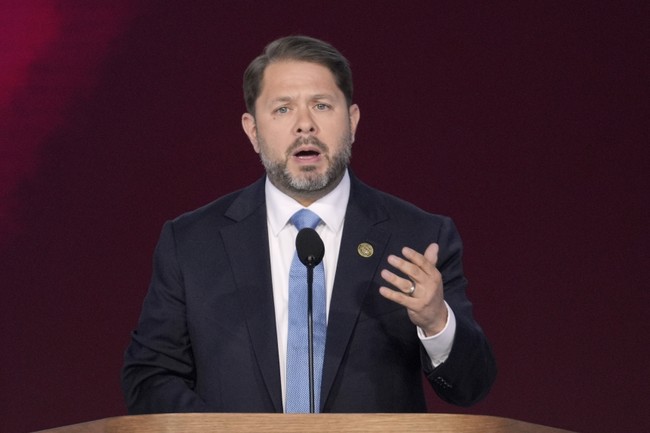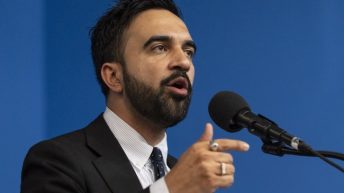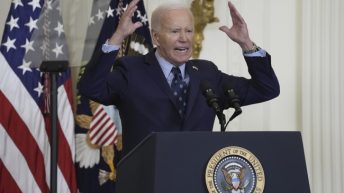The Schumer Shutdown has dragged on, leaving Republicans to push back hard as Democrats scramble to justify holding the government hostage for expanded benefits and healthcare for noncitizens. This piece lays out how GOP leaders are framing the issue, where Senate Democrats like Ruben Gallego have stumbled under questioning, and why House Republicans argue Democrats are prioritizing political theatrics over ordinary Americans. It highlights key exchanges that exposed tension within the Democratic ranks and why conservatives see the standoff as a failure of leadership. The story includes several preserved embeds of interviews and press exchanges that illustrate the clash.
Republicans say this is not just a policy fight but a test of priorities, and they are making that argument loudly. Speaker Mike Johnson has repeatedly pointed to the far left’s influence inside the Democratic Party as the root cause of gridlock and used that argument to explain why negotiations have stalled. He contends Democrats were “forced to” choose sides and that the party no longer accommodates centrists or moderates. That line of attack is aimed at showing voters that the shutdown reflects ideological capture rather than honest bargaining.
On the Senate side, Arizona Democrat Ruben Gallego has been thrust into the spotlight as one of the more visible defenders of his party’s approach, but his appearances have backfired in ways Republicans highlight. During a recent television exchange, host Joe Kernen pressed Gallego about past criticisms Democrats have leveled at shutdowns. Gallego’s defensive and combative posture prompted Kernen to eventually cut the interview short, a moment conservatives seized on as evidence of weakness and inconsistency in the Democratic message.
Senate Republicans and House leaders both pounced on another Gallego appearance where he refused to commit to a timeline for reopening the government, instead saying he was “looking at everyone’s personal pocketbooks.” That phrase became a focal point for GOP critiques, with House Majority Leader Steve Scalise outlining concrete consequences for families who stand to lose benefits. Scalise’s point was to contrast abstract rhetoric with immediate hardships facing single parents and children who rely on WIC and SNAP assistance.
Scalise delivered a pointed rebuke that named the scale of the potential impact: “42 million people will lose those benefits in just a few days.” He urged Gallego to focus on the tangible losses Americans will face rather than framing the dispute as a political posture. Republicans argue that when lawmakers continue to receive paychecks while services and benefits for citizens are at risk, it exposes a moral gap and invites public backlash. That argument is central to the Republican narrative that Democrats are using pain as leverage.
Conservative critics also point out a perceived inconsistency when members of Congress like Gallego acknowledge the seriousness of shutdowns but then appear unmoved when their party advances tactics that prolong the impasse. For Republicans, the issue is straightforward: governing requires compromise, and refusing to accept ordinary negotiation patterns in favor of maximalist demands threatens the social contract. That stance is being used to rally voters who see essential services disrupted and expect both parties to prioritize restoration over ideology.
Beyond the direct exchanges, Republicans highlight how messaging from Democratic leaders has shifted as the shutdown wears on. The label “Schumer Shutdown” ties responsibility to Senate control and seeks to keep attention on the Democrats’ bargaining posture. House GOP messaging frames the debate as one between responsible stewardship of taxpayer-funded services and a Democratic strategy that places political objectives above the needs of families. That contrast is designed to resonate with swing voters troubled by immediate disruptions.
Media appearances and heated interviews have become a theater for both sides, but Republicans argue the optics have favored their narrative in recent days. Instances where reporters cut off interviews or where Democratic officials offered evasive answers are presented by GOP leaders as proof that the Democratic case is collapsing under scrutiny. Those moments are amplified in Republican messaging to underscore claims that the opposition is defending untenable policy priorities at great cost to ordinary Americans.
Editor’s Note: The Schumer Shutdown is here. Rather than put the American people first, Chuck Schumer and the radical Democrats forced a government shutdown for healthcare for illegals. They own this.
Preserved below are the original interview and press-exchange embeds that captured these exchanges and reactions, presented in their original formats to show exactly how the dialogue unfolded.





Add comment